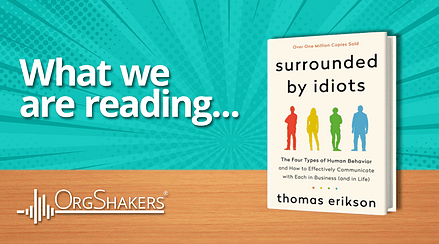Menu

Why Upskilling Younger Workers is Non-Negotiable for Employers
The workplace is evolving at speed. Technological change, shifting employee expectations, and the growing influence of artificial intelligence are reshaping what it means to build a future-ready workforce. Amid these changes, one thing is clear: Millennials and Gen Z are demanding more from their employers, and skill development is at the top of their list.
A recent survey of more than 1,000 full-time employees highlights the urgency. An overwhelming 96% of Millennials and Gen Z said having access to skills development is important, with nearly 70% of Millennials describing it as “extremely important.” Even more striking, 79% of Gen Z and 75% of Millennials said they would actively look for a new job if their current employer didn’t offer upskilling opportunities. For HR leaders already navigating talent retention challenges, this is a wake-up call.
Why younger workers are worth the investment
Technological aptitude
Gen Z are “digital natives.” They’ve grown up immersed in technology and bring with them an instinctive fluency with digital tools, social media, and emerging technologies. Employers who harness this natural strength and upskill it further can accelerate digital transformation and innovation.
Adaptability and agility
Raised in a fast-paced, ever-changing environment, younger employees are comfortable adapting quickly to new tools and contexts. With the right training, this adaptability translates into fresh perspectives, creative problem-solving, and the agility needed to stay ahead of competitors.
Bridging the skills gap
The rapid advancement of technology has left many organisations struggling to find talent with the right skills. One survey found that 62% of IT decision-makers saw a shortage of skilled personnel as a threat to sustainability. Targeted upskilling of Gen Z and Millennials in areas like data analysis, communication, AI, and critical thinking can help bridge this gap and create a steady supply of future-ready talent.
Collaboration and diversity
Gen Z is the most diverse generation yet, bringing inclusive perspectives and cultural awareness into the workplace. This openness not only strengthens collaboration but also helps organisations better understand and engage with new consumer markets.
How younger workers want to learn
It’s not enough to offer training, organisations must also deliver it in ways that reflect how younger employees learn best. According to Seismic’s survey:
- 77% of Gen Z and 78% of Millennials prefer video-based learning over slide decks and seminars.
- 49% of Gen Z favour one-on-one mentorship or small group settings.
- 79% of Gen Z are comfortable learning from an AI-powered coach.
This is a clear signal that traditional corporate training no longer meets expectations. Employees want flexibility, personalisation, and relevance. They want coaching and development embedded into their flow of work, aligned with their goals, and accessible on demand.
AI is already part of the picture
While some organisations are still debating the role of AI, younger employees are already using it. 68% of Gen Z respondents said they have used AI-powered training tools, compared to just 20% of Boomers. This generational divide shows that for younger talent, AI-driven, personalised learning is not a futuristic concept, it is already part of their development toolkit.
For HR leaders, the message is clear: AI-powered training and coaching are now expected. Employers that fail to integrate these tools risk falling behind in both employee engagement and retention.
The bottom line for HR
The next generation of workers has made their expectations clear. They want opportunities to grow, they want modern and flexible training, and they want it now.
For employers, investing in the learning, development, and upskilling of younger employees is no longer optional. It is the key to talent retention, readiness, and long-term organisational growth. It also demonstrates to new hires that they are valued from the outset, building loyalty and strengthening retention in an increasingly competitive talent market.
If your organisation is serious about staying ahead of the curve, the time to act is now. Embedding continuous, personalised, and AI-enabled learning into your culture is one of the most strategic moves HR leaders can make to future-proof their workforce.
Interested in learning more? Speak to our team at OrgShakers, a leading global HR Consultancy today!



